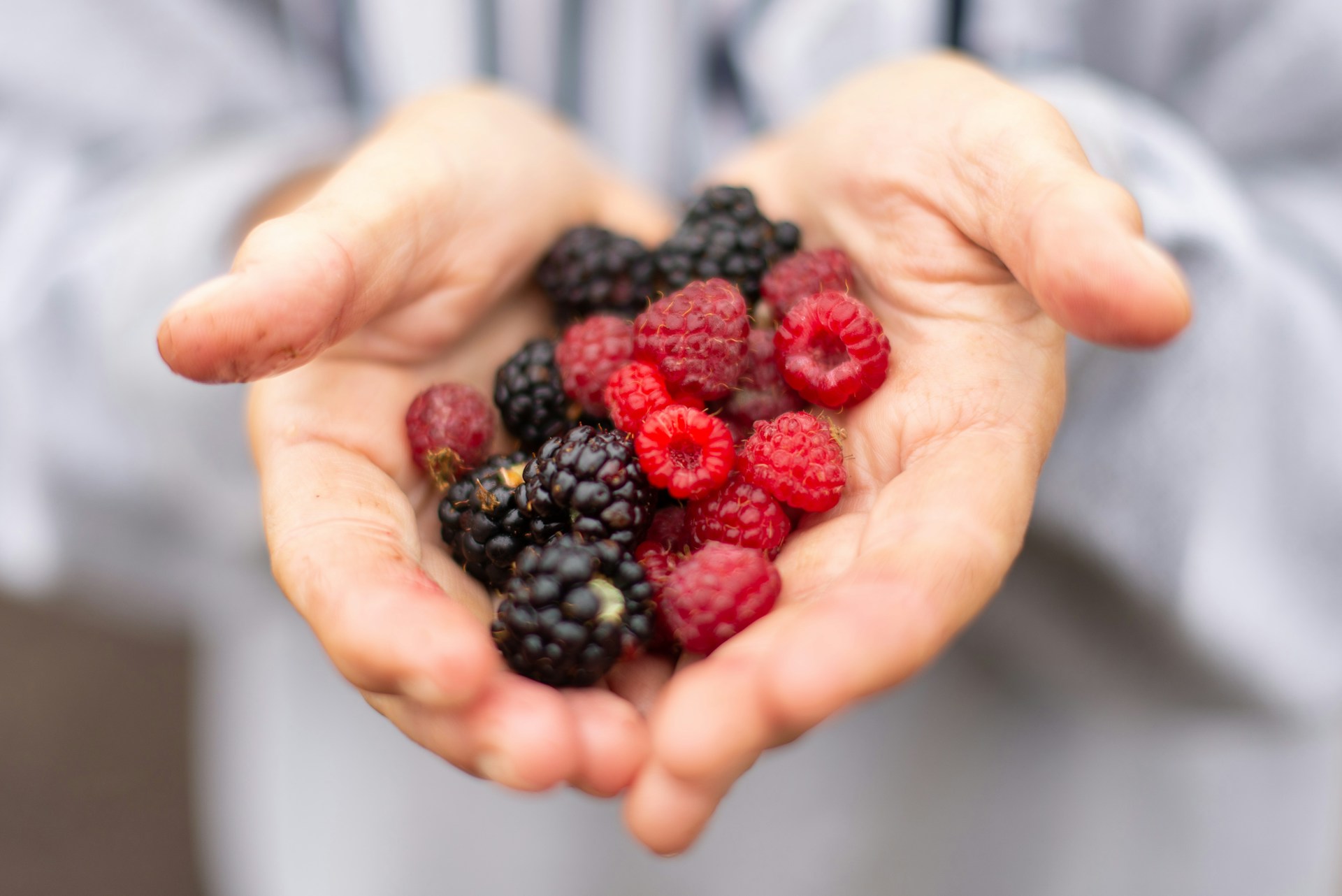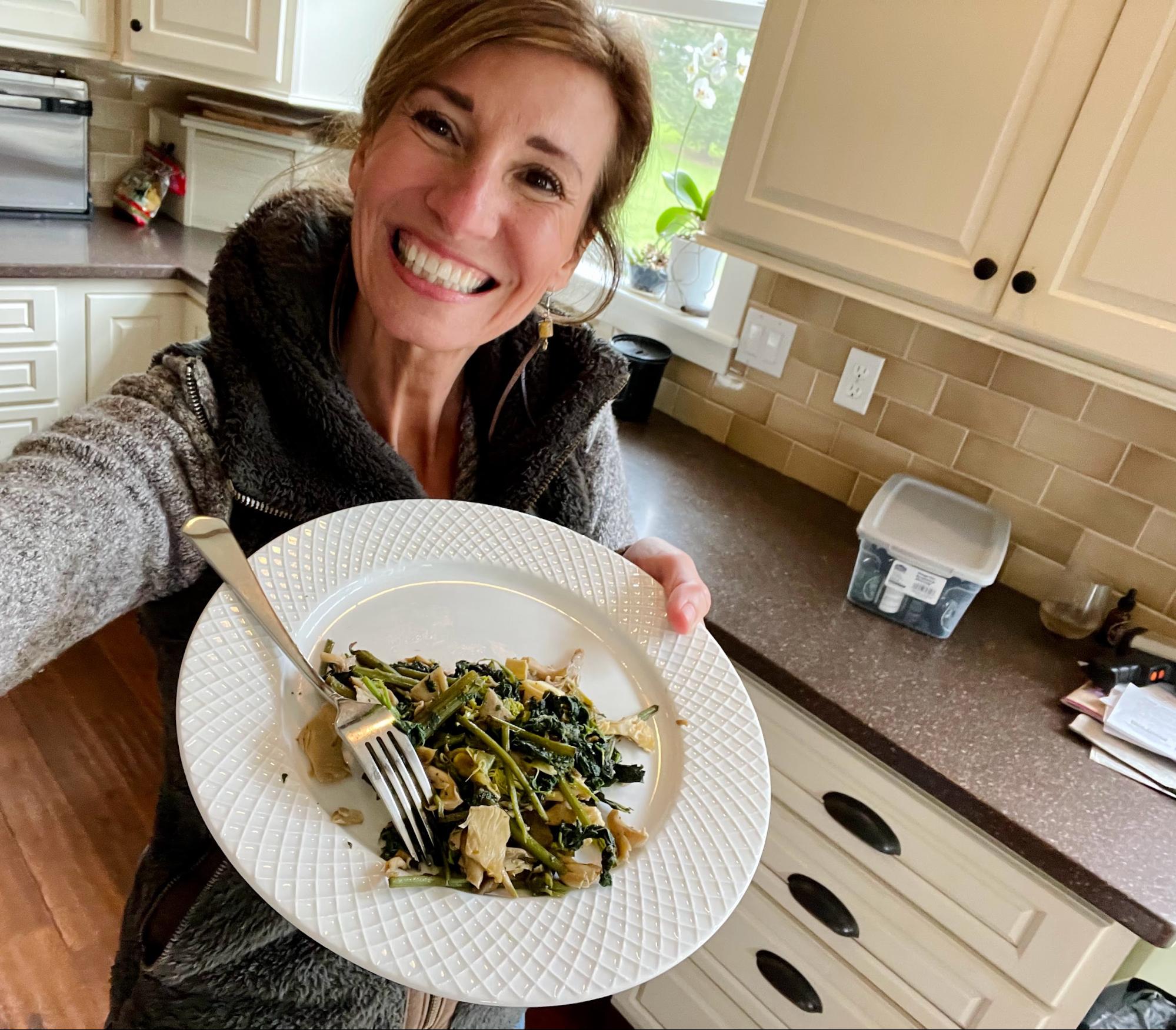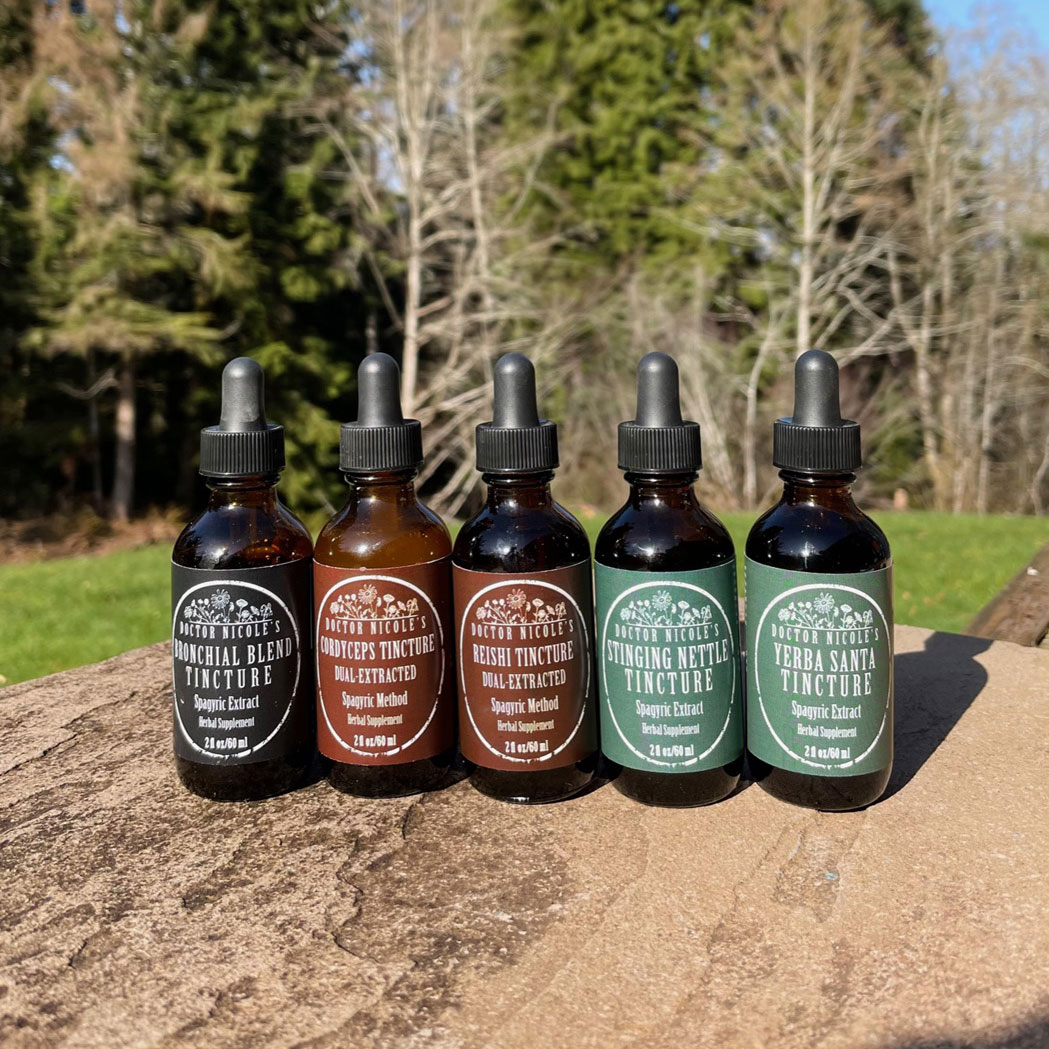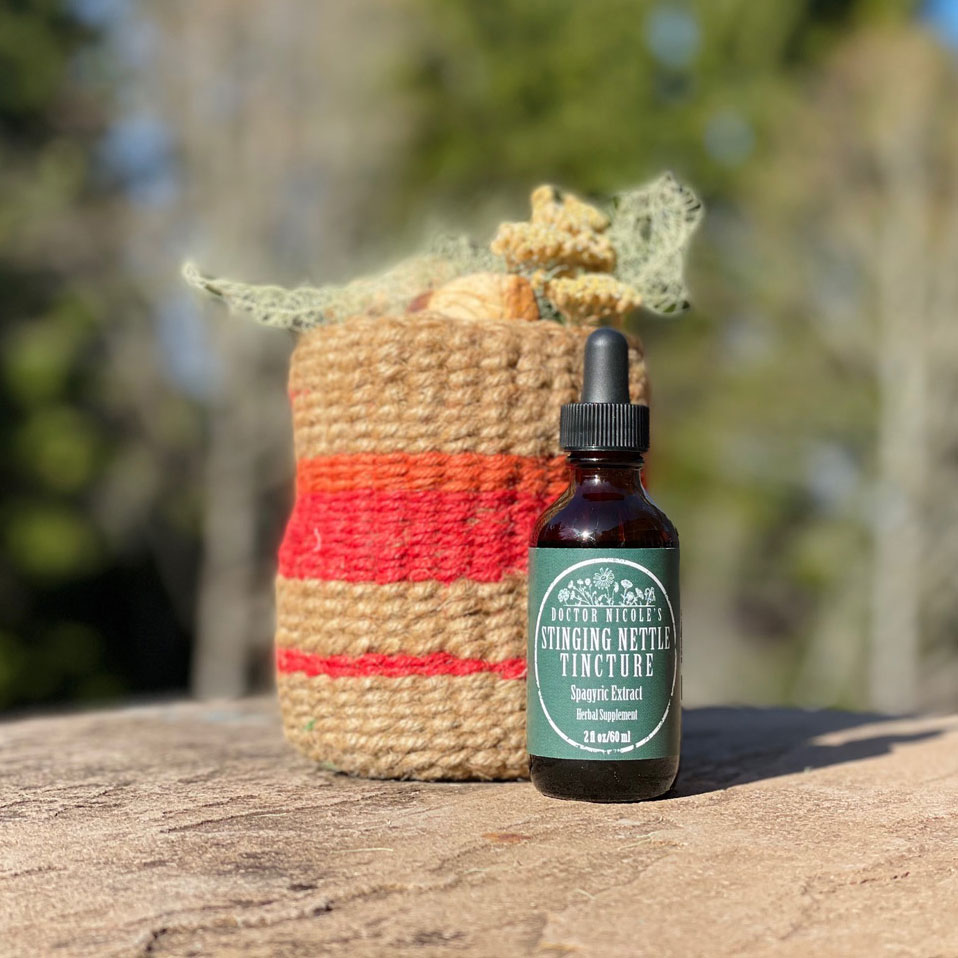Spring is Here — Along With Allergies
We are at that wonderful time of year when flowers, trees, and fields are bursting forth into life again. It is truly a spectacular season, but for many, it also means seasonal allergies have arrived as well. If you find yourself struggling to enjoy the beauty because watery eyes, congestion, and fatigue are ruling the day, good news! In this post we will explore six foods and several herbs that naturally ease symptoms, so you can fully embrace spring and take advantage of all the season has to offer.

Top Foods to Calm Symptoms
What you eat matters — and springtime is no exception. Food choices during this season can significantly improve your hay fever symptoms, especially when they address inflammation and histamine release. If you want to calm the effects of seasonal allergies, here are six foods that can help:
Omega-3 Fatty Acids. Found in fatty fish, walnuts, chia seeds, and flaxseed, these healthy fats have been shown to ease allergy symptoms and asthma by reducing inflammation.1 Opt for wild-caught, smaller fish to reduce exposure to mercury and other contaminants. Good choices include mackerel, salmon, sardines, trout, and herring. Flaxseed (along with Brazil nuts) also contains selenium — another anti-allergy nutrient.
Quercetin. An anti-inflammatory flavonoid, this compound prevents the release of histamine, thereby calming the immune response to allergens.3 Apples, berries, cabbage, onions, cauliflower, and tea (both black and green) are excellent sources.
Vitamin C. Consuming foods high in vitamin C has been shown to decrease irritation of the upper respiratory tract caused by pollen.2 Focus on tomatoes, strawberries, oranges, pineapple, red and yellow bell peppers, broccoli, grapefruit, lemons, and limes.
Turmeric. A powerful anti-inflammatory, this distinctive golden rhizome can help to calm swollen nasal passages and soothe irritation caused by allergens.4 Add a pinch of black pepper to improve absorbability.
Ginger. Another potent anti-inflammatory, ginger helps to reduce swelling and irritation of the eyes, nasal passages, and throat.5 Powdered or fresh, ginger is an exceptional addition to your meals during the allergy season. It can also be enjoyed as a delicious hot tea.
Stinging Nettle. If you love to forage as much as I do, stinging nettle is an excellent food for reducing allergy symptoms. In fact, studies have shown stinging nettle is highly effective for reducing allergic histamine and inflammatory responses.6 It can be cooked like spinach, made into a pesto, or taken as a tincture for near instant relief.
What about honey? Some believe consuming small amounts of local raw honey throughout the year can help to ease allergy symptoms due to its pollen content. The same can be said for eating bee pollen directly. The idea is that honey works the same as allergy shots by gradually desensitizing your immune system to allergens. However, when put to the test, studies have had conflicting results.
It is also important to note dairy can aggravate hay fever symptoms and asthma by increasing inflammation and respiratory congestion. Many find completely avoiding dairy can be helpful — particularly during the allergy season.
Plant-Based Solutions for Hay Fever & Asthma
Seeking additional support during springtime and beyond? I have you covered with our Allergy & Asthma Bundle.
This essential tincture collection contains five unique botanical extracts to help clear bronchial passages and nasal congestion; reduce respiratory inflammation; calm the histamine response; inhibit mast cell degranulation; and improve circulation. These powerfully effective herbal tinctures for asthma and the allergy season include: dual-extracted reishi and cordyceps medicinal mushrooms, stinging nettle, and yerba santa for drying up mucus fast.
Our must-have Bronchial Blend is also included, which contains lungwort lichen and mullein leaf extracts for herbal antibiotic action, clearing mucus from the bronchial passages, soothing coughs and wheezing, easing tightness of breath, and cooling inflammation in the respiratory tract.
ALMOST INSTANT ALLERGY SYMPTOM RELIEF. FINALLY!
“Dries you up fast! Almost instant allergy symptom-relief. I have bad allergies – really bad allergies (I use Nicole’s Stinging Nettle tincture for allergies daily in allergy season plus daily Reishi). The Yerba Santa plus Stinging Nettle is the ONLY thing that has worked for me. I tried everything else but nothing else worked. I use this for symptom-relief to dry up the mucus and it WORKS! I also use it when I have a cold or sinus infection. Crazy how it dries me out! Thank you so much – I’m telling my family and friends about it too!” -Maria R.
If you need strong relief without having to rely on over-the-counter drugs, our Allergy & Asthma Support Bundle is an outstanding all-natural option. Stop by the apothecary today and experience the power of our gold-standard herbal extracts for yourself!
Nicole Apelian
Nicole’s Apothecary Products in this Post
References
- Adams, S., Lopata, A. L., Smuts, C. M., Baatjies, R., & Jeebhay, M. F. (2018). Relationship between Serum Omega-3 Fatty Acid and Asthma Endpoints. International journal of environmental research and public health, 16(1), 43. https://doi.org/10.3390/ijerph16010043
- Seo, J. H., Kwon, S. O., Lee, S. Y., Kim, H. Y., Kwon, J. W., Kim, B. J., Yu, J., Kim, H. B., Kim, W. K., Jang, G. C., Song, D. J., Shim, J. Y., Oh, S. Y., & Hong, S. J. (2013). Association of antioxidants with allergic rhinitis in children from seoul. Allergy, asthma & immunology research, 5(2), 81–87. https://doi.org/10.4168/aair.2013.5.2.81
- Mlcek, J., Jurikova, T., Skrovankova, S., & Sochor, J. (2016). Quercetin and Its Anti-Allergic Immune Response. Molecules (Basel, Switzerland), 21(5), 623. https://doi.org/10.3390/molecules21050623
- Kurup, V. P., & Barrios, C. S. (2008). Immunomodulatory effects of curcumin in allergy. Molecular nutrition & food research, 52(9), 1031–1039. https://doi.org/10.1002/mnfr.200700293
- Kawamoto, Y., Ueno, Y., Nakahashi, E., Obayashi, M., Sugihara, K., Qiao, S., Iida, M., Kumasaka, M. Y., Yajima, I., Goto, Y., Ohgami, N., Kato, M., & Takeda, K. (2016). Prevention of allergic rhinitis by ginger and the molecular basis of immunosuppression by 6-gingerol through T cell inactivation. The Journal of nutritional biochemistry, 27, 112–122. https://doi.org/10.1016/j.jnutbio.2015.08.025
- Roschek, B., Jr, Fink, R. C., McMichael, M., & Alberte, R. S. (2009). Nettle extract (Urtica dioica) affects key receptors and enzymes associated with allergic rhinitis. Phytotherapy research : PTR, 23(7), 920–926. https://doi.org/10.1002/ptr.2763






